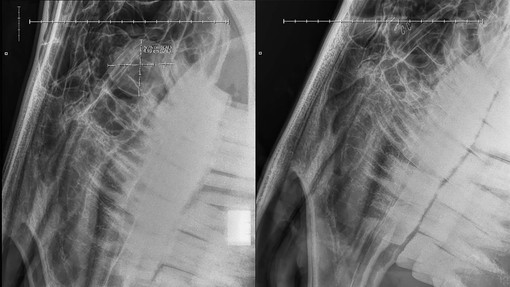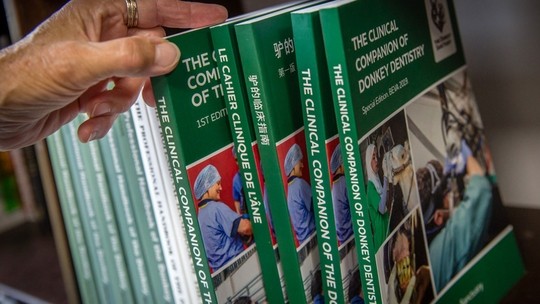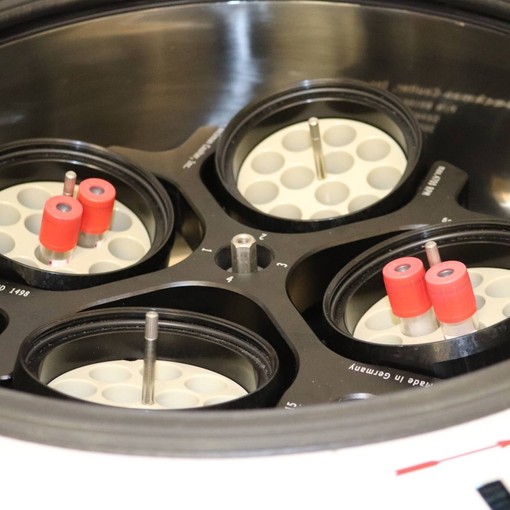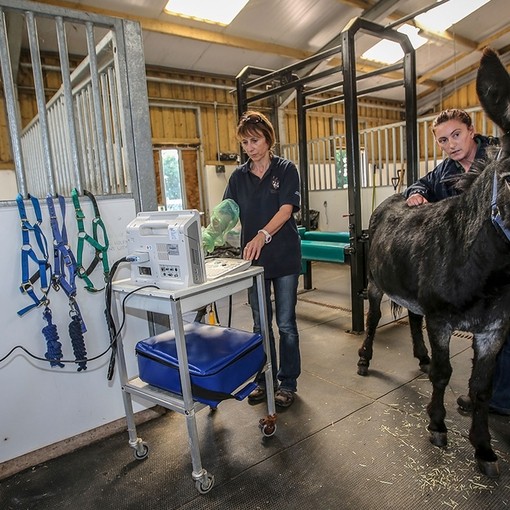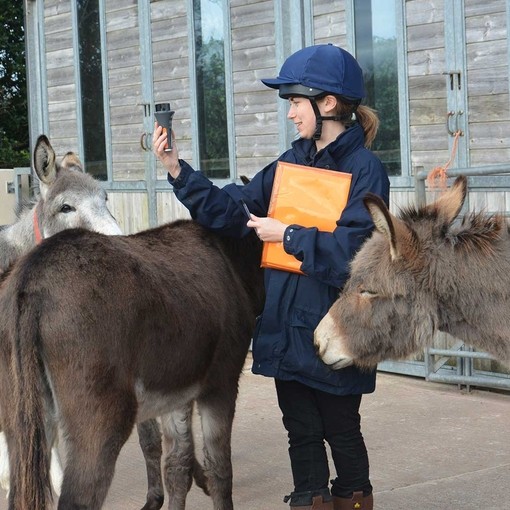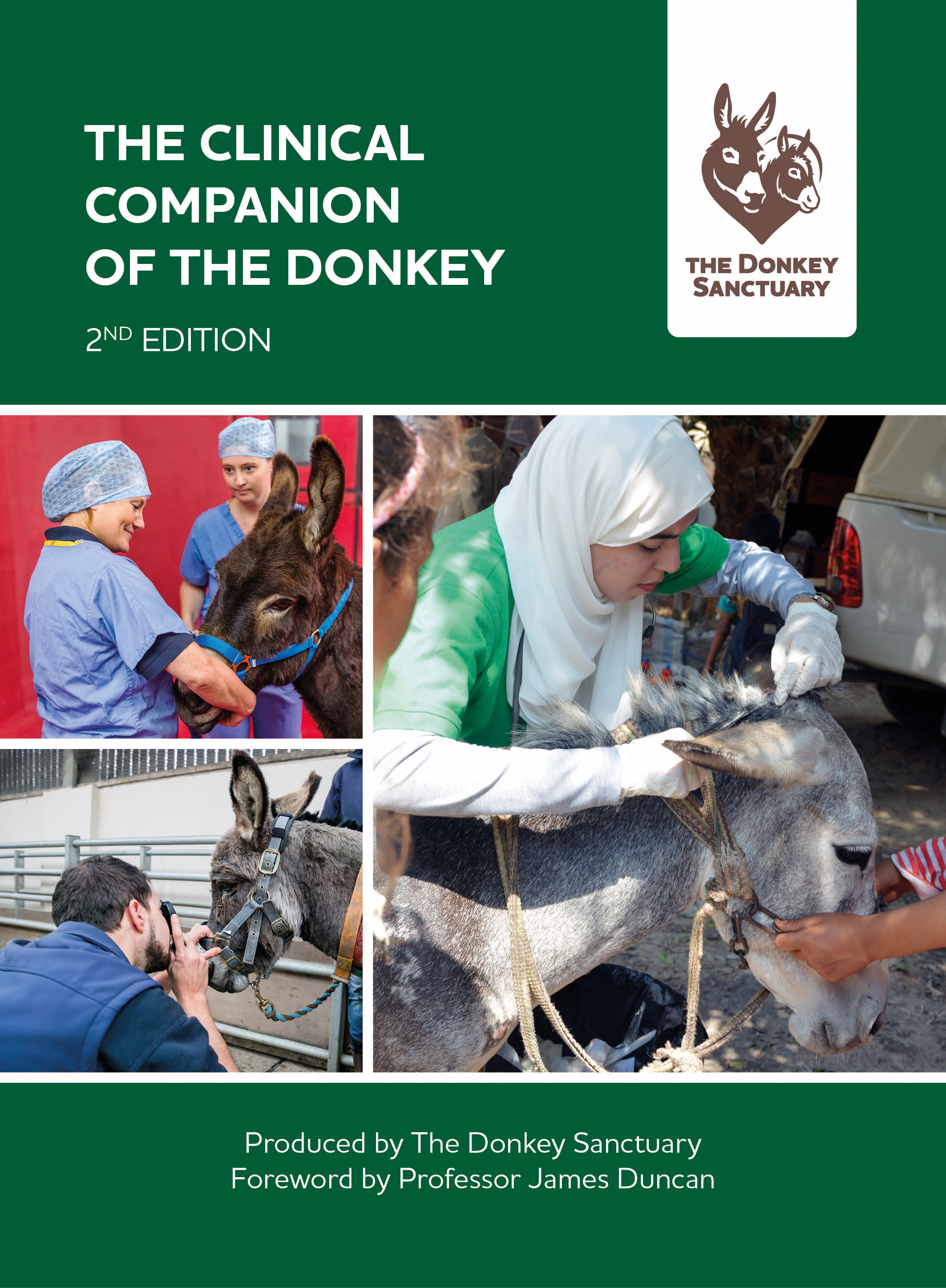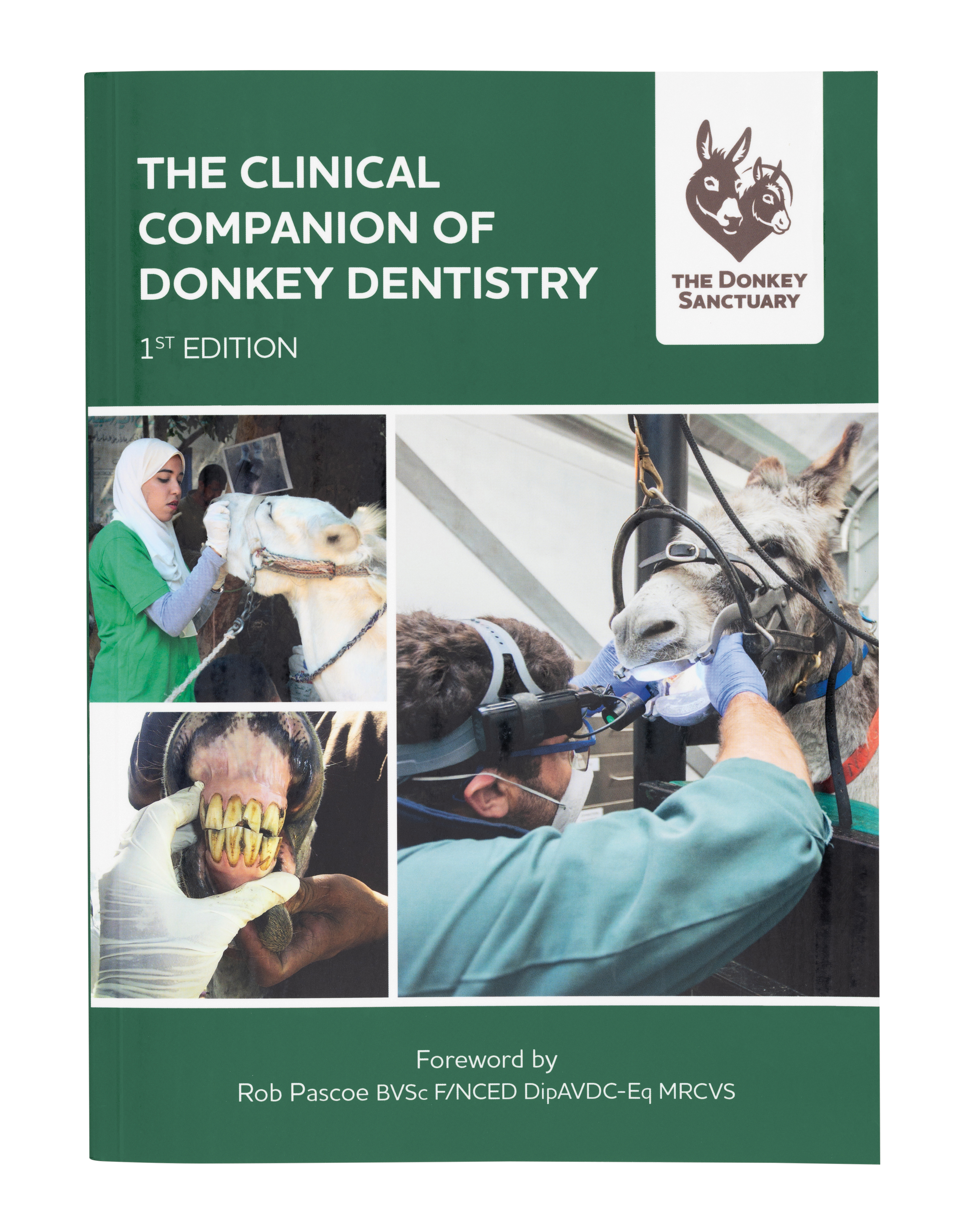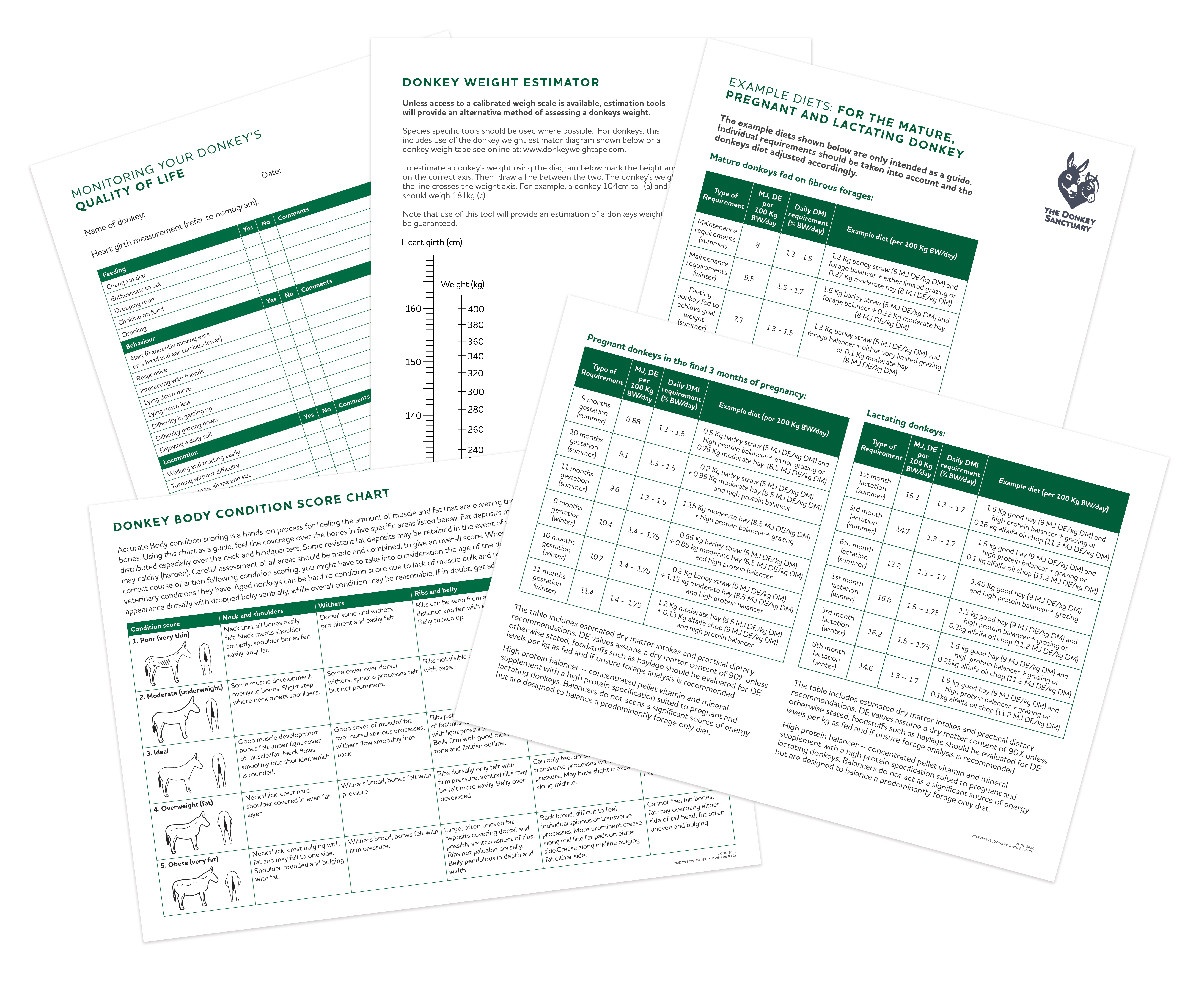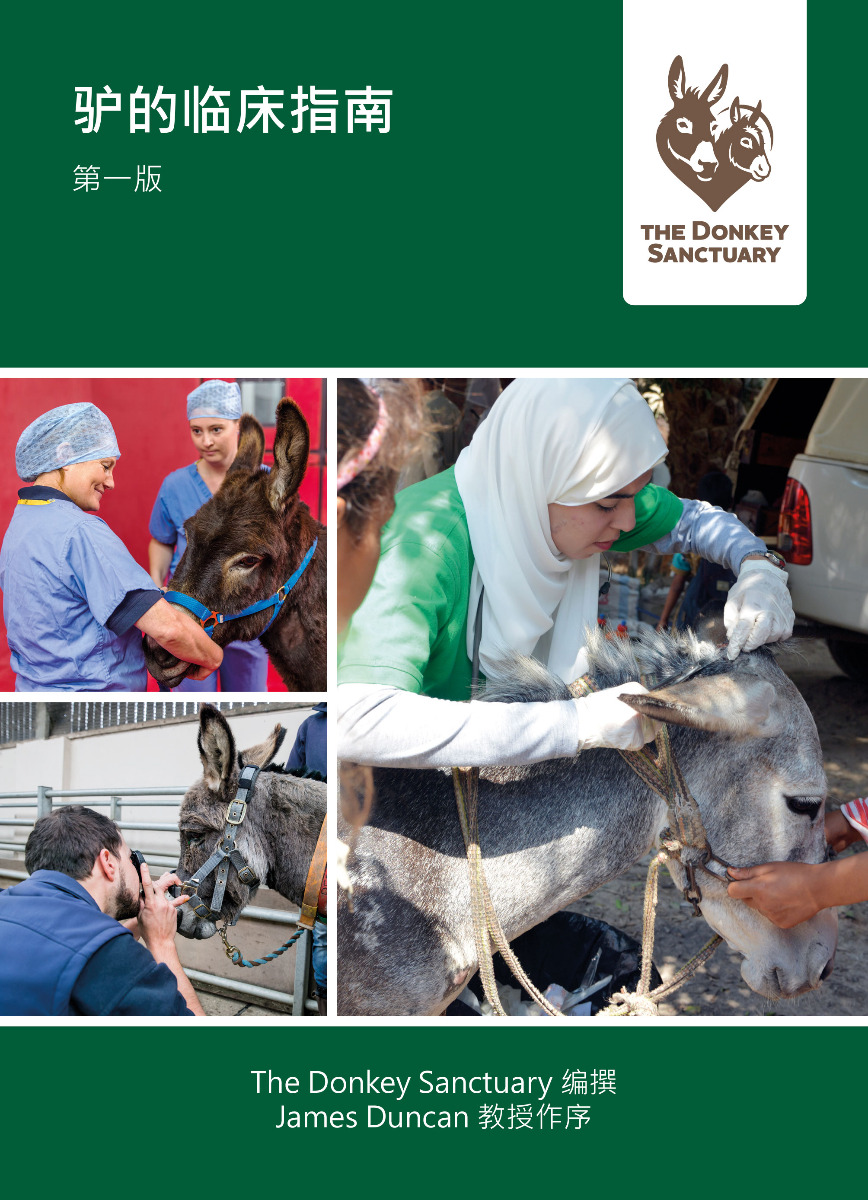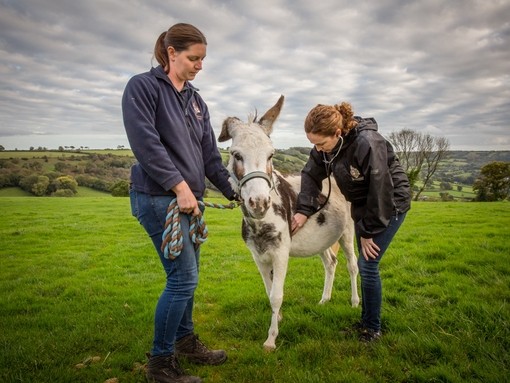
Professional help and support
Professional resources
The Donkey Sanctuary has produced the following advice for businesses on licensing and how to protect the welfare of working donkeys.

This factsheet highlights some of the important points to remember when carrying out procedures on the donkey and how they differ from the horse and pony.

Decisions surrounding euthanasia are largely based on an animal still having an acceptable ‘quality of life’. A good quality of life is something that we want for all (animals) donkeys, it means a life free from pain and discomfort that is enriching and enjoyable.
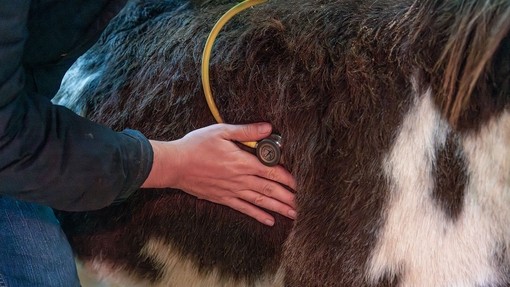
Stallion-like behaviour can occur in donkey geldings, especially if castration was delayed until the donkey was mature.

Endoparasite prevalence, control and clinical relevance in donkeys can often cause confusion and concern to vets and owners alike.
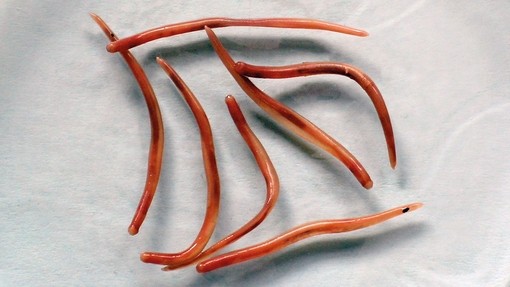
Discover the essential biochemical and haematological parameters for adult donkeys, crucial for their health and well-being.

Clinical case studies
Discover more about the treatment of seven year old Christian, suffering from congenital flexural deformities of both distal interphalangeal joints (otherwise known as 'ballerina syndrome').
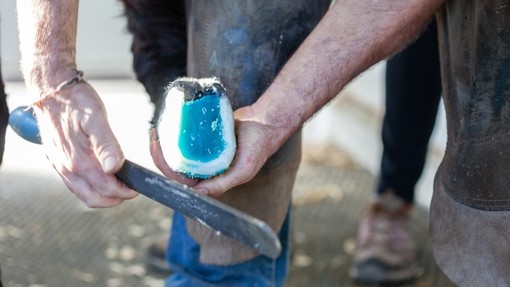
Find out more about how a plasma bank at The Donkey Sanctuary was used in a case of colitis for donkey Dusuy.
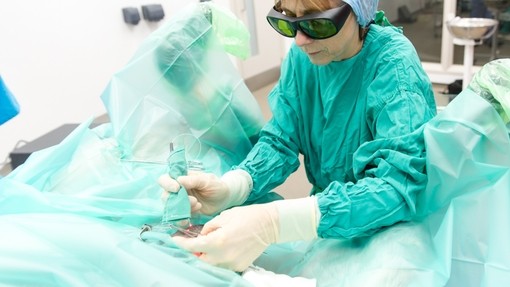
Read more about the collaborative process between our vets and Equine Dental Technicians in removing two fractured incisors of young gelding.
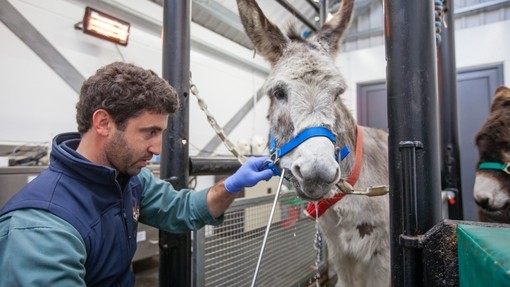
Free courses for professionals
This course will provide you with valuable information for trimming donkey feet and applying orthopaedic treatments to donkey feet through sharing the different techniques used by The Donkey Sanctuary farriers and veterinary surgeons.
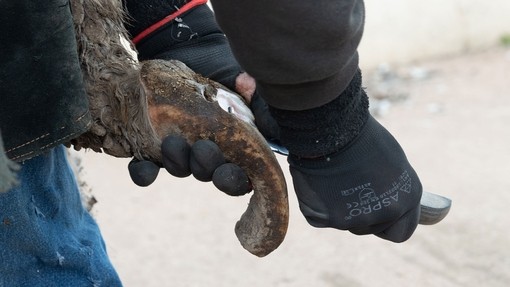
This course covers areas that are high priority for donkey welfare, due to the morbidity and mortality of the conditions addressed.
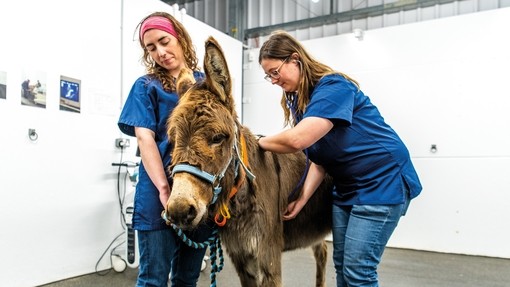
The third of our courses on equid dentistry is focussed on dental disorders.
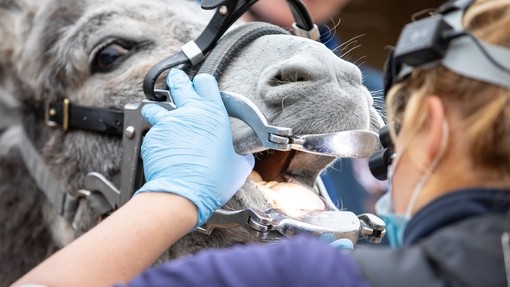
Participants will develop a deeper knowledge of the underpinning theories of equid dentistry and thereby, aid the promotion of practical skill for the prevention and treatment of dental disorders.

In the fourth of our equid dental courses, we explore the most common instrumentation available.
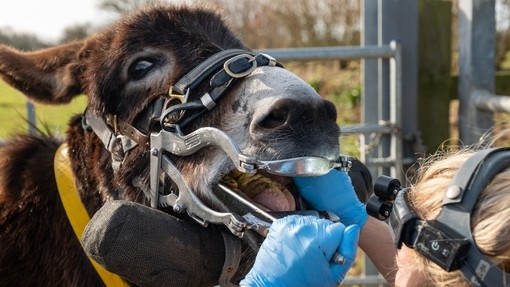
The second of our courses focuses in on the diagnosis of equid dental disease.
